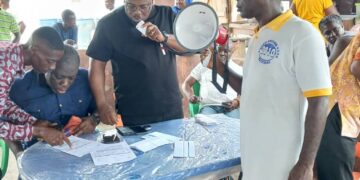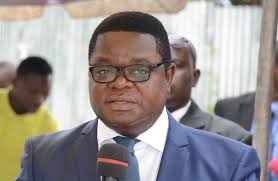Professor Peter Quartey, Head of Economics Department, Institute of Mathematical, Social and Economic Analysis (ISSER), University of Ghana, believes that government should automate all domestic tax mobilization sources to help reach revenue goals.
The best way to prevent corruption, he said, was to ensure efficiency in tax collection by digitisation and restrict human interface or discretion.
Professor Quartey was speaking at the Virtual Seminar of the Ghana National Chamber of Commerce and Industries (GNCCI) in Accra.
On the 2021 Budget Statement, it was organized in collaboration with KPMG, JoyBusiness, Bank of Africa, McDan Group, GhanaWeb, and Business24 on the theme: “2021 National Budget: Prospects for Recovery, Resilience, and Competitiveness for Private Sector Growth.”
Road tolls, for example, should be increased and automated, according to Professor Quartey, because tax efficiency is vital to national growth.
He said that taxes were necessary because they benefited both corporations and the general public.
He said fiscal policy will affect the degree of general economic development, growth, and job formation, as well as the demand and availability of labor and livelihoods, when speaking about macroeconomic stability and its consequences for the market climate.
COVID-19, according to the Economic Professor, has exacerbated the already limited fiscal scope, and costs and reliefs will almost inevitably have to be paid; “there is no free lunch.”
“For national growth, we need to expand and extend the tax base to include a lot of people,” he said.
Mr Evans Asare, a Senior Associate at KPMG, said the government’s GhanaCARES Program had the ability to drive the economy over the next three years by expanding the machine tool sector, the ICT/digital economy, promoting commercial farming, and attracting skilled youth into agriculture.
Read Also: COPEC to MPs: Do not support new fuel taxes
He stated that the program would be the driving force behind Ghana’s light manufacturing strategy, which would include agro-processing and food import substitution, as well as the development of the housing and construction industries.
It will also aid the national mortgage and promote Ghana as a regional center for engineering, ports, and logistics financial services.
Access to finance, structural reforms, the Public-Private Partnership Act, Vaccination and the AfCFTA Agreement were among the budget measures listed by Mr Asare to help enterprises and revitalize the economy.
He said the AfCFTA will be a game changer in the coming days, speaking on taxes and policies to improve economic growth and value for the private sector.
He projected that intra-Africa exports and imports will rise by more than 80% and 100%, respectively, by 2035, relative to the current estimate of less than 70 billion dollars.
Mr. Clement Osei-Amoako, President of the Ghana National Chamber of Commerce and Industry, said this year’s national budget was remarkable because it came after a global pandemic that affected any part of human life and business operations, adding, “It therefore generates an unconscious preference for calculated aspirations.”
The implementation of new taxes, upward adjustments to current taxes, and COVID-19 funding measures, he added, had mixed market reactions to the 2021 National Budget.
According to Mr Osei-Amoako, the aim of the seminar was to encourage experts and business operators to understand and interrogate government policies and programs in the budget, as well as to discuss inherent risks and business opportunities.
He told stakeholders of the Chamber’s strong contribution to supporting and protecting the country’s economic and industrial interests.
“I invite non-members to join the Chamber so that they can start taking advantage of the multitude of market possibilities and knowledge that the Chamber offers by the distribution of value-added products,” he said.
SOURCE: ATLFMONLINE

























